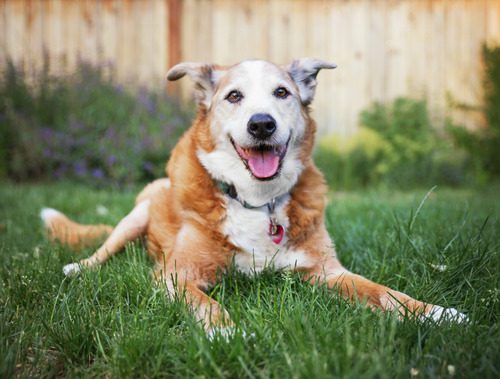How Do Colder Temperatures Impact Senior Pets?
As pets age, their needs change in ways that may not be immediately obvious. For senior pets, adjusting to shifts in seasonal weather can become more challenging and have a significant effect on their overall well-being. From cooler temperatures in winter to the heat of summer, it’s important for pet owners to understand how these changes can impact their senior pet’s health and comfort. In this blog, we will explore the effect of different weather conditions on senior pets and offer tips on how to help them stay comfortable throughout the year. For pet owners in Coronado, CA, who want to make sure their senior pet is comfortable year-round, give Coronado Veterinary Hospital a call at (619) 435-6281 or make an appointment online.

How Cold Weather Affects Senior Pets
As the seasons shift and colder temperatures roll in, senior pets may struggle more than their younger counterparts. Just like older humans, senior pets can be more vulnerable to cold weather due to changes in their bodies as they age. These changes can include reduced muscle mass, joint stiffness, and a slower metabolism, all of which make it harder for them to regulate their body temperature.
Exacerbate Chronic Conditions
Cold weather can exacerbate conditions like arthritis, making mobility more difficult for senior pets. Joint pain often worsens in cold, damp weather, making it challenging for senior pets to move around comfortably. It’s not uncommon to see older dogs or cats experience stiffness after spending time outdoors or even after sleeping in a chilly room.
Poor Immune System
Older pets are more susceptible to illnesses, and the drop in temperature may increase their risk of respiratory infections. This is especially true for senior dogs and cats with pre-existing health conditions. Monitoring your pet’s behavior and looking out for signs of discomfort, like shivering or increased lethargy, can help prevent these issues.
Combatting Cooler Weather
For senior pets in Coronado, where winters tend to be mild but can still dip into cooler temperatures, it’s necessary to provide them with a warm, comfortable environment indoors. A soft bed and a warm spot away from drafts can help keep your pet feeling cozy.
How to Help Senior Pets Stay Warm
- Provide extra bedding and blankets.
- Dress your pet in a cozy sweater or coat for outdoor walks.
- Limit time outside during cold snaps, especially in the early morning or late evening.
- Use pet-safe heating pads under their bedding.
- Keep their bed away from cold floors or drafty windows.
Seasonal Allergies in Senior Pets
Senior pets can develop or worsen allergies with age, similar to humans. Seasonal allergens like spring pollen and fall mold can impact their health, especially since older pets often have weaker immune systems. Allergies may cause skin irritations, itching, or respiratory issues like sneezing and coughing. For pets with conditions like asthma or dermatitis, allergens can worsen symptoms. To manage allergies, regular grooming and a clean environment are key. Bathing with hypoallergenic shampoos and wiping down after walks can reduce exposure. Frequent vacuuming and using air purifiers also help minimize allergens in your pet’s living space.
Common Allergens That Affect Senior Pets
- Pollen (trees, grass, and weeds)
- Mold spores
- Dust mites
- Flea bites
The Importance of Hydration in Seasonal Weather
Hydration is crucial for senior pets, especially during seasonal extremes like summer heat or winter’s dry air, which can lead to dehydration. Older pets may not drink enough water on their own, increasing the risk. In winter, heating can dry out the air, while in summer, pets lose moisture through panting and sweating. Senior pets may struggle to rehydrate effectively, so it’s important to ensure they drink enough water. To encourage hydration, try adding water to their food, offering ice cubes, or using a pet water fountain. Always provide easy access to fresh, clean water.
Is Your Senior Pet Dehydrated?
- Dry mouth and gums
- Sunken eyes
- Loss of skin elasticity
- Lethargy
- Increased heart rate
If you notice signs of dehydration, contact Coronado Veterinary Hospital at (619) 435-6281 to discuss hydration solutions for your senior pet.
Preparing for Seasonal Changes
As the seasons change, senior pets require extra care to ensure they remain healthy and comfortable. Whether it’s protecting them from the chill of winter or keeping them cool during the summer heat, being proactive in addressing seasonal weather’s impact is key to your senior pet’s comfort. Taking small steps to modify your pet’s environment and routine as the seasons change can make a big difference.
- In colder months, placing your senior pet’s bed near a heater or adding extra blankets can provide warmth.
- In the warmer months, switching to lighter bedding and ensuring access to cool areas can help your senior pet regulate their body temperature better.
- Regular visits to Coronado Veterinary Hospital allow your veterinarian to assess your pet’s health and provide guidance on any seasonal changes that could impact their well-being.
Helping Your Senior Pet Live Comfortably All Year Long
Caring for a senior pet during seasonal weather changes requires attention to detail and a bit of extra preparation. From making sure they stay warm in winter to providing hydration in summer, you can support your senior pet through every season. If you have concerns about your senior pet’s health or need more tips on helping them adapt to seasonal weather, reach out to Coronado Veterinary Hospital. Our team is here to ensure your pet remains healthy and happy throughout the year. Call us today at (619) 435-6281 or make an appointment online to discuss your senior pet’s needs.
About Us
Coronado Veterinary Hospital, a family-owned practice in Coronado, CA, prioritizes the human-animal bond, offering personalized care for pets in the area for over 70 years. With a broad spectrum of services tailored to meet the unique needs of each pet, our team is dedicated to nurturing pets' health with compassionate, comprehensive care.